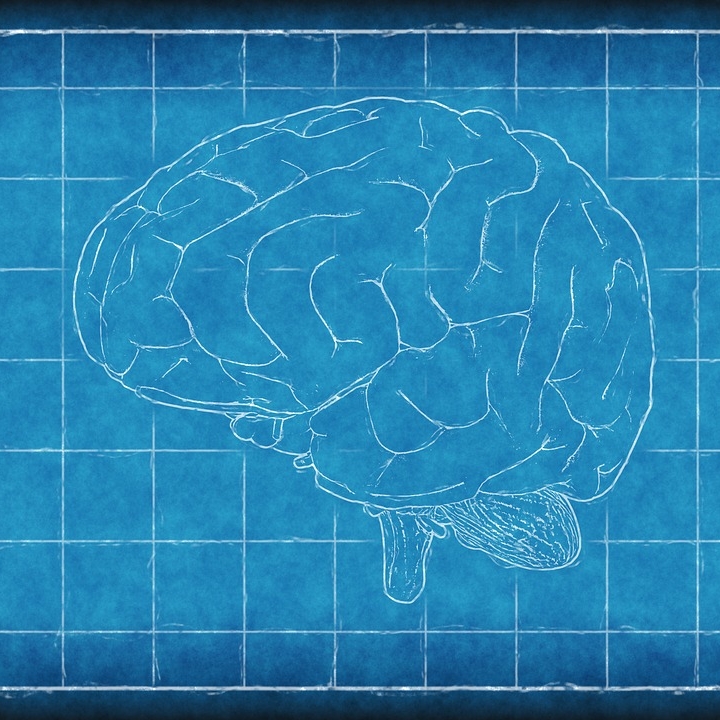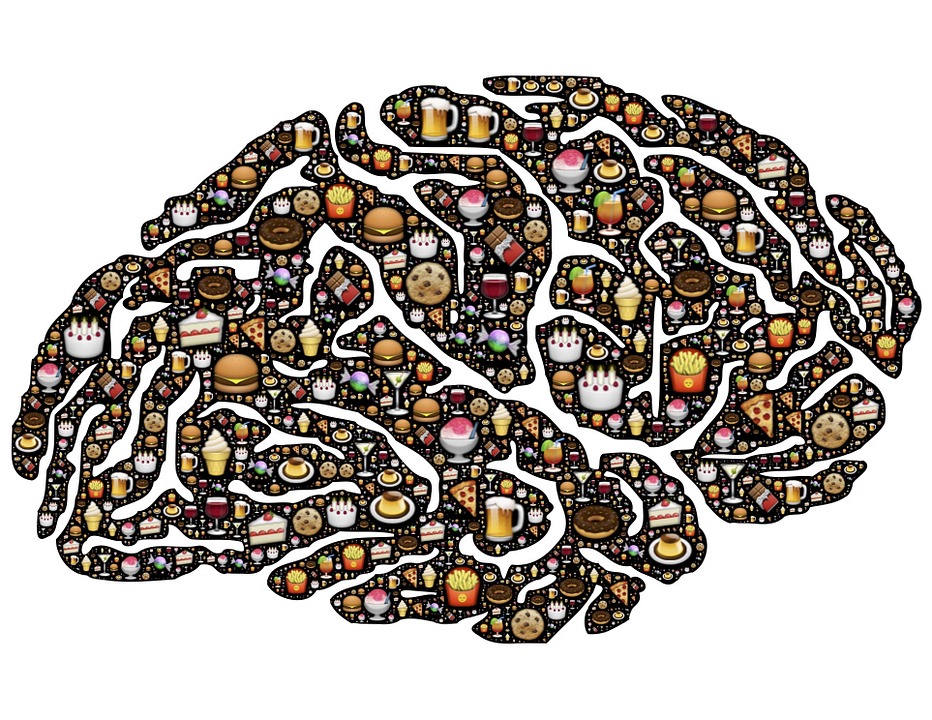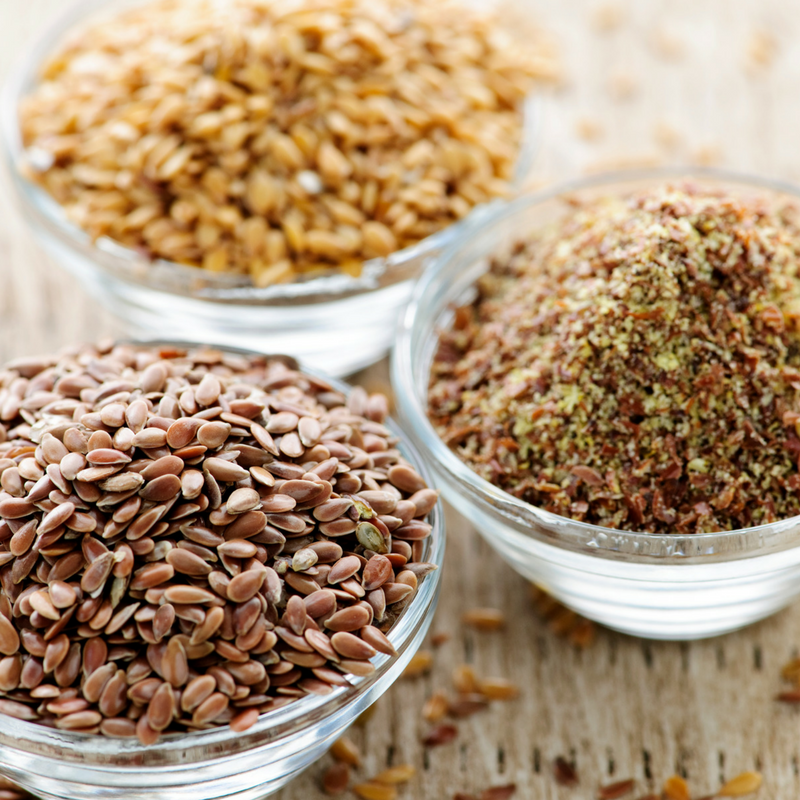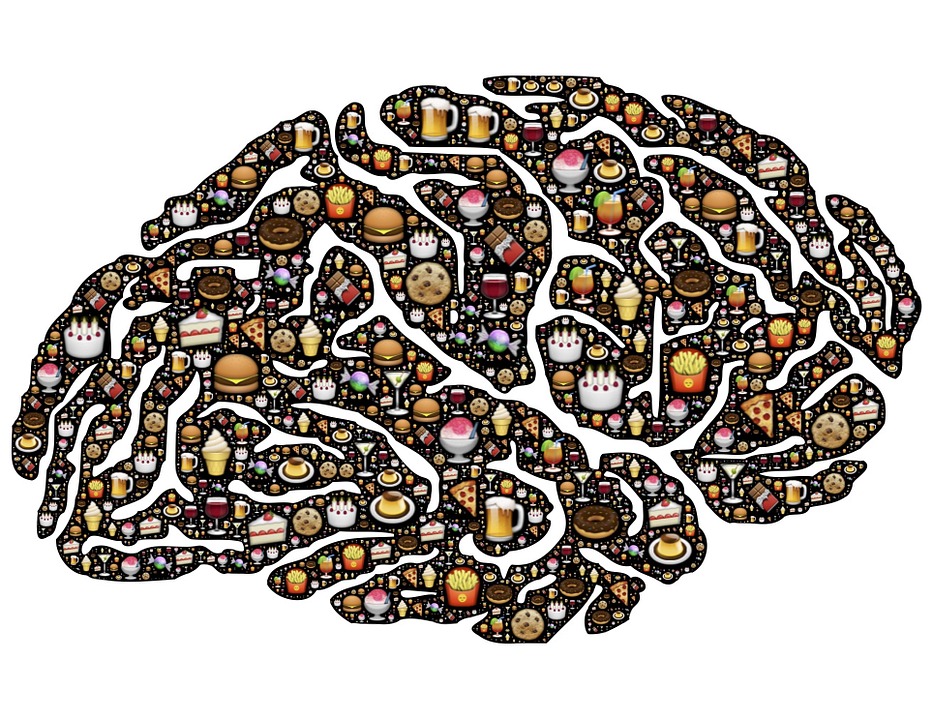June 17, 2019
By Kristen Kelly
Do you ever find yourself feeling hazy? Do you find it harder to concentrate, forget people’s names more, or sleep lighter than you used to? It’s surprisingly very common. Cognitive functions in humans are declining at ever faster rates: Deaths due to Alzheimer’s are up 55% over the last 15 years and rates of Parkinson’s disease have gone up ‘significantly’. ‘Brain fog’ is a pretty new phenomenon affecting large numbers of us. Clearly, the problem is not going away anytime soon. These are new problems, Western problems – caused, like so many things, by the Western lifestyle and diet.

Photo Credit: Pixabay
Your brain is always working and needs constant fuel – an estimated 20% of from your caloric intake, in fact. It needs vitamins, minerals and antioxidants to keep it running smoothly and protect it from oxidative stress (the free radicals produced as waste when cells use oxygen).
The thing about the brain, though, is that it is separated from the body by a protective barrier. If harmful chemicals get inside, it is hard for the brain to get rid of them and to repair the damage.
Free radicals and inflammatory cells from dietary sources, like processed and refined foods, can circulate within the enclosed space and injure the brain tissue and genetic make-up – permanently.
Food and Emotion
Studies show that a ‘traditional’ diet, like the Mediterranean diet with its abundance of veggies, offer up a 25-35% lower risk of depression than a ‘western’ diet. Traditional diets are often much higher in fruits and veggies, and unprocessed grains, with only a small amount of animal protein and much less of the refined, processed foods that are our staples. These diets are also high in probiotics as often foods are fermented – further studies have shown links between probiotics and anxiety/stress and mental outlook.
There is a consistent trend between diet patterns and mental health in children and teens, plus growing evidence that shows dietary improvement can prevent depression, specifically high intakes of fruit, vegetables, fish and whole grains.
This is partly because of Serotonin 95% of this hormone that regulates mood is produced in the digestive tract. The intestine is lined with nerve cells that are highly influenced by ‘good’ bacteria, whose role is to provide a barrier against toxins and ‘bad’ bacteria, improve nutrient absorption, and activate neural pathways between the gut and brain. So those good bacteria can literally affect our mood and energy.
There is also evidence that good bacteria can reduce inflammation – which can, in turn, reduce all that brain fuzziness.
Diet, saturated fats and brain function
There is a whole host of studies concluding that adherence to a Mediterranean diet may help prevent a series of brain diseases, including in ageing populations. This is supported by numerous studies demonstrating that a Mediterranean diet results in slower cognitive decline and a lower risk of Alzheimer’s.

Photo Credit: Pixabay
Whilst studies have shown that brain circulation, structure, plasticity and functionality can be supported by diet, the opposite is demonstrated with diets high in saturated fats, and there is evidence that these diets can lead to irreversible damage to the brain.
But it’s not that all fat is bad; in fact, fat is essential to brain function. Studies show that cognitive function can be improved in an older population by following a Mediterranean diet supplemented with polyunsaturated olive oil and nuts – the ‘good fats.
Sugar
Sorry, sweet-toothed readers (and author… ahem). But the main offender has to be sugar. There is growing evidence of a huge connection between a diet high in refined sugars, and impaired brain function, and yet more linking high sugar consumption with mood disorders like depression.

Photo Credit: Pixabay
A recent study has taken the dietary world by storm. Fernando Gomez-Pinilla’s team at the University of California trained rats to navigate a maze. During the following 6 weeks, the rats were given 15% fructose syrup instead of the water (only 3% more than most sodas which on average contain of 12% sugar).
They found that the rats ended up considerably slower at navigating the maze – suggesting a cognitive impairment that was confirmed when the scientists examined the rats’ brains.
Sugar was literally giving the rats brain damage – destroying the synapses’ ability to change, therefore severely impeding the rats’ ability to learn. The sugar also disrupted insulin in the hippocampus, suggesting a negative impact on memory.
But never fear! The same study fed half the rats an omega-3 fatty acid supplement, and discovered that whilst the brain still experienced damage from sugar, its prevalence was not so high. A deficiency in these fatty acids plus a high sugar diet is the most damaging option.
Omega-3s – the miracle cure?
This is supported by further experiments, which demonstrated that a diet low in DHA and high in saturated fats (we’re back to those again), causes anxiety and behavioural problems in rats. It has now been suggested that the omega 3 fatty acid DHA can actually begin to regulate the inflammatory response, promote brain cell survival and trigger ‘long-term restoration’ of damaged synapses. Neat.

Flax seeds, rich in omega 3
Photo Credit: Pixabay
At UCLA, a recent study linked high sugar intake with a damaging genetic shift that can cause diabetes, cardiovascular disease, Alzheimer’s and ADHD – but found that DHA can reverse some of these harmful changes.
“DHA changes not just one or two genes; it seems to push the entire gene pattern back to normal, which is remarkable”, says Xia Yang, senior author of the groundbreaking study.
But it’s not a cure-all – there is still evidence of significant damage after the DHA has done its work. Not to mention, all of this has yet to be tested on humans, and the rats were not fed saturated fats, processed/refined foods or anything else known to damage brain health.
Not to mention, with 66% of packaged foods containing added sugar, and our consumption at 88lb per person per year here in Canada, we may be on a much higher sugar diet than even those sugar-addled rats!
The takeaway?
Refined sugar is damaging our brain – there are no two ways about it. But by making sure to include a sufficient amount of omega-3 fatty acids, specifically DHA’s, in your diet, you can slow down the damage.
Reducing saturated fats will go a long way in supporting cognitive functions, as well as including ‘healthy’ polyunsaturated fats and foods rich in omega-3s.
Water and exercise are vital to keeping the brain running healthily. Try to eliminate excess sugar from your diet – if you’re finding it on too many labels, ditch the labelled food and try whole foods only – you’ll be surprised how different you feel!
If you enjoyed this blog, sign-up for our newsletter to receive future updates.
RESOURCES
2 Savica R, Grossardt BR, Bower JH, Ahlskog JE, Rocca WA.Time trends in the incidence of Parkinson disease. JAMA Neurol. Published online June 20, 2016. https://archneur.jamanetwork.com/article.aspx?articleid=2529538. Article abstract. Accessed June 23, 2016
3 Claire T. McEvoy, Heidi Guyer, Kenneth M. Langa, Kristine Yaffe. Neuroprotective Diets Are Associated with Better Cognitive Function: The Health and Retirement Study. Journal of the American Geriatrics Society, 2017; DOI: 1111/jgs.14922
4 Daniel J. Davis, Holly M. Doerr, Agata K. Grzelak, Susheel B. Busi, Eldin Jasarevic, Aaron C. Ericsson, Elizabeth C. Bryda. Lactobacillus plantarum attenuates anxiety-related behavior and protects against stress-induced dysbiosis in adult zebrafish. Scientific Reports, 2016; 6: 33726 DOI: 1038/srep33726
19 Statistics Canada, ‘Sugar consumption amongst Canadians of all ages’, 2011

Comments